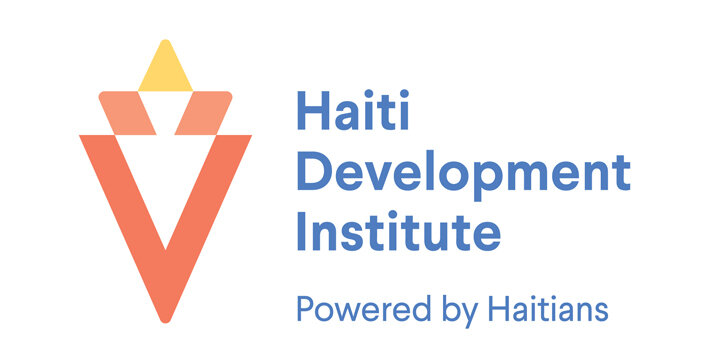Haiti Is Not Port-au-Prince
Members of the Youth Advisory Group in Arcahaie
We are concerned about the escalation of violence by gangs in Port-au-Prince, and about the power vacuum and delay in formation of a transitional government. Our thoughts are with the people threatened by gangs and unable to meet their basic needs.
It is important to remember, however, that Haiti is not Port-au-Prince. I am happy to report that because HDI works outside of Port-au-Prince, both HDI staff and our grantees’ and partners’ staff and communities in rural Haiti are in safe places, although their ability to travel and access to supplies are severely restricted. The situation in the capital affects our work, but our office is open, and we continue to make progress on our many activities, including:
We are supporting 12 agriculture-focused social enterprises in the South with new financing and accompaniment, with more investments in development.
In the Arcahaie region, we are monitoring 14 grants to community groups supporting their community improvement projects.
We are supporting an incubator that is providing training in entrepreneurship to 60 young people, and an accelerator that will develop 5 selected enterprises with training, accompaniment and investment.
We are also conducting an agricultural resources inventory of the Arcadins region, employing 65 young people as surveyors.
We operate a leadership program for young people that supports them to engage as stakeholders in the development of the Arcadins region (pictured above).
We are creating an Agrifood Entrepreneurship Center, a “one-stop shop” to offer farmers in the Arcadins Coast access to tools and facilities to grow, store, preserve and market more crops and produce value-added products.
Decentralization is Key
You might not know it from the news, but most of Haiti is quiet and life is proceeding close to normally, albeit the unacceptably impoverished normal. Rural Haiti is affected by the ongoing crisis; restrictions on the movement of people and goods are causing price increases and shortages, and hurting farmers’ ability to reach markets. But local organizations are still at work, implementing their projects and continuing their programs aimed at developing their communities.
As the international community focuses on crises and the humanitarian sector gears up again, resources will be made available, but only for short-term relief interventions. Always overlooked is what is really needed -- much more ongoing support to locally-led development, especially outside of Port-au-Prince. What is desperately needed is the kind of support that helps local leaders address their communities’ poverty in ways that will be long-term and sustainable. Rural Haiti needs investments like the ones HDI is making, ones that can enable Haitians to feed themselves and create jobs and viable livelihoods. HDI’s support helps grassroots organizations build social enterprises that drive economic development using local assets, such as by helping farmers produce more and process and market value-added products.
Leaders of OPAGMA, an organization in Maniche, South Dept. promoting agricultural production.
Decentralization is core to HDI’s mission not only to reduce extreme poverty but to address one of the root causes of Haiti’s dysfunctional democracy – the marginalization and disengagement of the majority of its citizens who live outside of metropolitan Port-au-Prince.
Investing in rural communities builds leadership and a positively engaged citizenry throughout the country. Strong local leaders and institutions can participate in rebuilding Haiti’s civil society and economy. Engaged and secure citizens who have a stake in their community will not want to migrate and can support Haiti’s development into the inclusive, representative republic that it was meant to be.
Opportunity in Crisis
It is counterintuitive, but there is often opportunity in crisis. The gang takeover of Port-au-Prince has caused a large exodus of people returning to other parts of the country. This is an opportunity to re-balance the country’s development. These people add assets to Haiti’s small cities and rural areas.
But we must capitalize on this opportunity. Now is the time to support the responsible and courageous leaders in these regions by investing in their institutions and long-term plans. Now is the time to invest in Haiti’s youth to train them for viable livelihoods and instill hope for their futures, so they can resist engagement in illicit activities. We must invest in local organizations, either directly or through intermediaries like HDI. Humanitarian organizations must partner with community-based institutions to support the needs that communities themselves identify and prioritize, and build assets that will reduce people’s vulnerability long-term.
We are grateful for all those who continue to support Haitians and Haitian organizations. Thank you for your commitment and your belief in a brighter future for Haiti's people.
Kenbe fem,
The HDI Team
Artist’s Rendering of Model Farm and Agrifood Entrepreneurship Center



